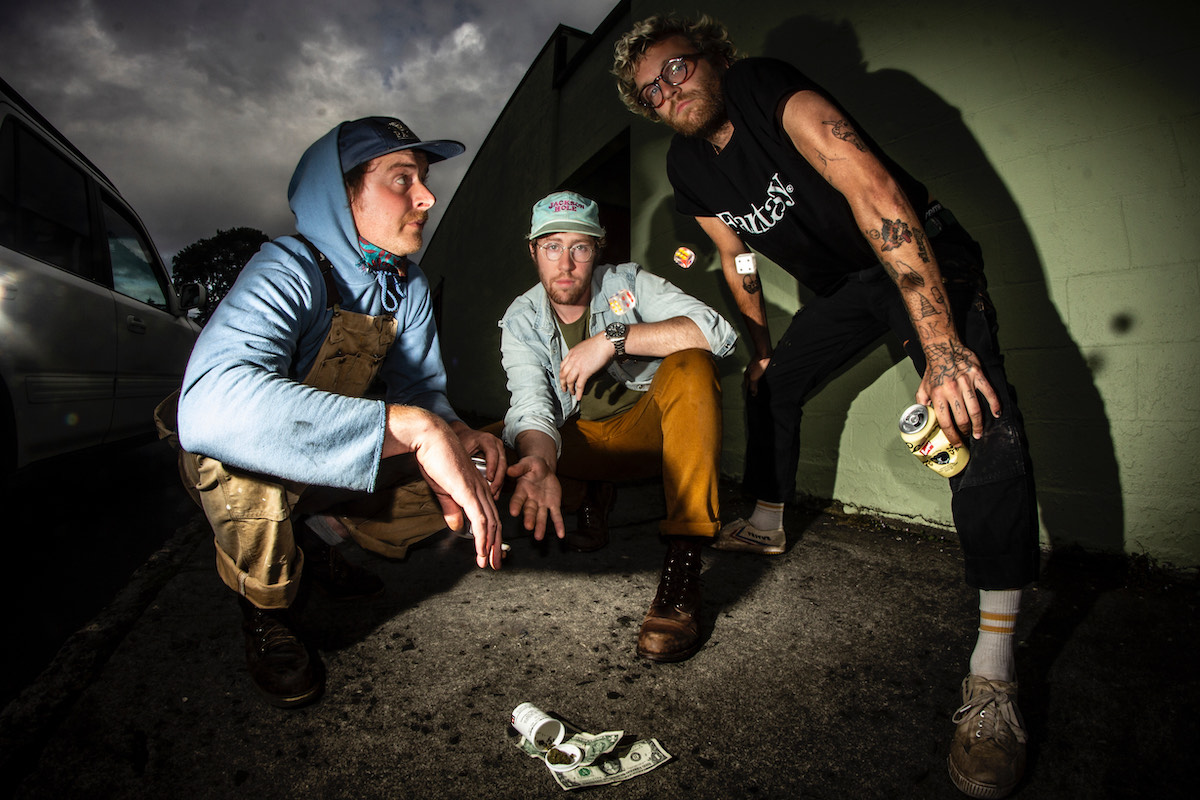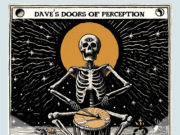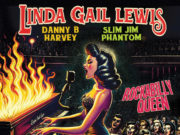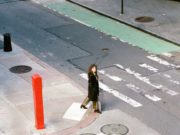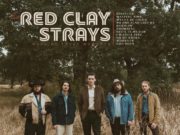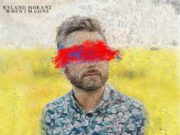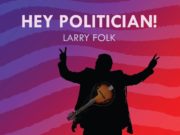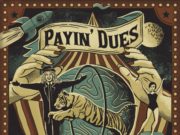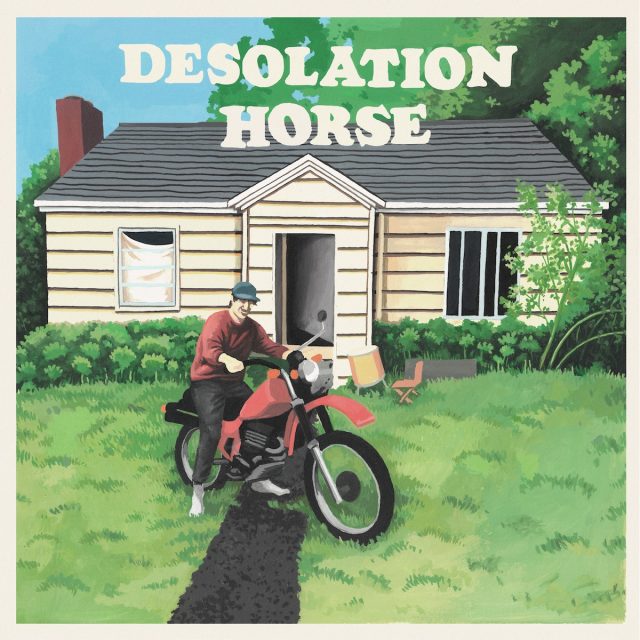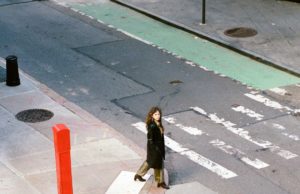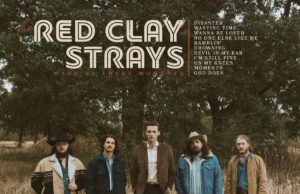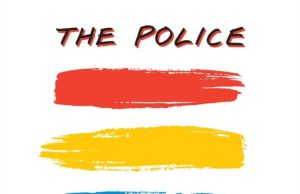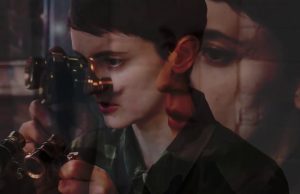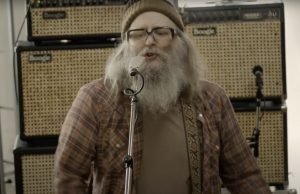THE EDITED PRESS RELEASE: “Among Cooper Trail’s best qualities is his sincerity. He radiates joy. His angelic nature belies the fact that he has been sitting on the best underground album on the west coast for nearly two years. The pop-inspired indie stunner Desolation Horse came to us as it did for many other people — through word of mouth. Mysterious links. Hours of headphone listening. Perhaps its private nature is why it’s become such an emotional-support album. Or perhaps it’s the many themes: small town-mentality, a triple homicide, coming of age, social contracts. “I like to talk out what I’m going through with other people, so that what I’m thinking doesn’t get stuck in a loop in my head,” he says. Cooper’s opus, recorded in late 2018, is a secret that has run through the Northwest like a knife, carving a valley for his fans.
He recorded Desolation Horse at friend Olaf Ydstie’s place in Astoria, Oregon, and at the century-old OK Theater in Enterprise, Oregon. Olaf and Nevada Sowle helped engineer the album, working as a support crew to mic, track, and mix tracks while Cooper played nearly every part on the album himself. As with Cooper’s world, huge, lyrical drums, and enveloping swathes of electric distortion live in harmony with bravura arpeggios, gentle bells, soothing strings. Under the instinctual ear of frequent musical partner Sowle, the album went through post-production and became an indie masterpiece.
Cooper is probably best known as a session drummer. He’s the metronomic, humbly in-pocket rhythm section on some of the best albums to come out of the Northwest the last five years. Which is to say, he’s in demand, and busy. Once he processed what he had been going through on Desolation Horse, the album sat. He was busy in 2019 touring the US and Europe with An American Forrest, Bart Budwig, and Maita. But the album could not be contained. Nate Wolff, Humble Burger restaurateur (and founder of Modest Fest) in Moscow, Idaho, offered to help Cooper put the album out. Around the same time we got word from a publicist friend that our favorite drummer had an album we had not heard. Some months later — after Desolation Horse became a salve on our own 2020, we offered Desolation Horse a spot on the label.
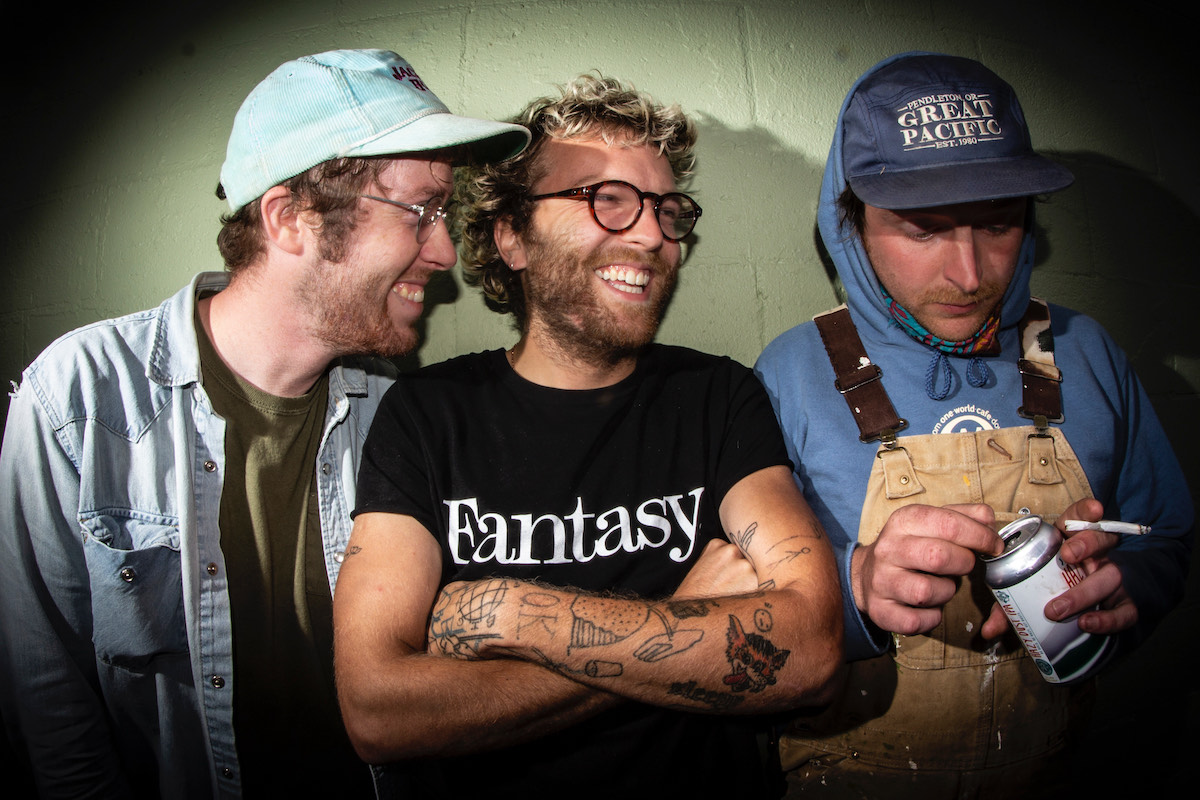
“Have you heard Cooper’s album?” I asked Forrest Van Tuyl. “Graceland T-Shirt played in the tour van non-stop,” he said. Cooper worked as An American Forrest’s drummer during his 2019 tour, and his bandmates were the litmus test for Desolation Horse’s strength. Peer favorites are the cheeky love songs A Little Freaky and the semi-autobiographical Graceland T-Shirt, songs about sensitively — albeit incorrectly — managing love connections. This is the antithesis of rock ’n’ roll — the absence of any bravado, that made the first wave of “indie” music great. The willingness to admit freezing up, turning red, going numb, suffering from panic, anxiety. Cooper’s openness about loneliness, depression are what makes the album so relatable. Instead of acting out performatively in song, Cooper’s aggression, concentrated fear and frustration go into his compositions. Drums skitter at rare time signatures. Songs flow in movements, gaining and dropping momentum in moments with tempo, swell, and silence. Desolation Horse and Crumarine Creek are the songs that helped Cooper deal with the death of his grandfather in a triple homicide in his small hometown. “I wasn’t real close with him, but we spent summers on his property, which Crumarine Creek runs through, when I was a kid. His death didn’t impact me so much as it did send shockwaves through my family and town. Everyone was impacted. I’m talking myself through that on those songs.”
Ultimately the album culminates in its lead singles Heavy Rain and Superchamp. These are the stories of Cooper realizing music was the way out. The job, and the ticket to freedom for someone who had simply grown out of his small town. Heavy Rain incorporates Cooper’s strange ability to play any instrument by ear, using both banjo pluck and electric guitar to create the infectious rhythm on a song about leaving home for good. Superchamp is about using those tools — the guitar, the drumkit, the amplifier, to get out and see the world. Cooper’s solo project has actually taken on a life of its own. It’s grown out of his hands, demanding release, needing to be heard. He lets it fly, just like he did from his home years ago.”
